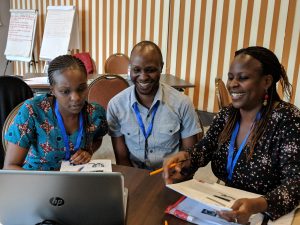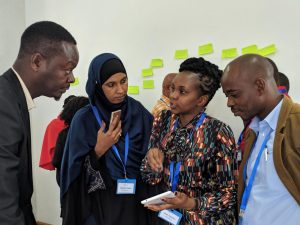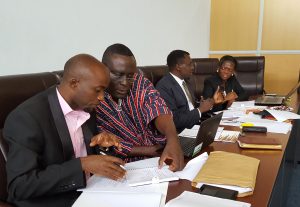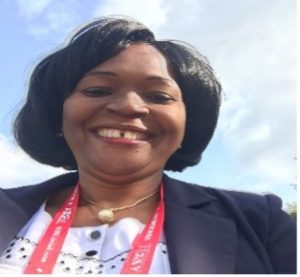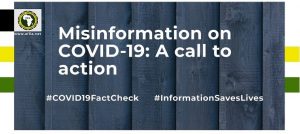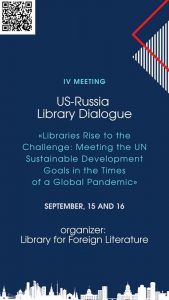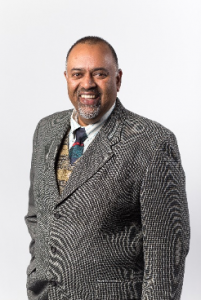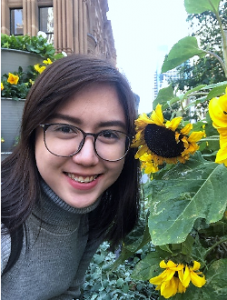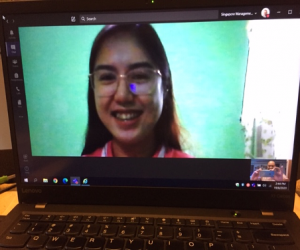EIFL photo: A moment from the Performance and Outcome Evaluation training workshop in Kenya (2018)
In 2018-2020, EIFL (Electronic Information for Libraries – www.eifl.net) developed and implemented in four African countries a new continuous professional development (CPD) strategy that is sustainable, country-wide, and affordable with the use of skilled local trainers. In a previous blog post, we discussed the importance of assessment of training needs to this strategy. In this post, EIFL details the programme that helped develop the training skills of the local librarians.
The question on the mind of the EIFL’s Public Library Innovation Programme (EIFL-PLIP) team before starting the pilot programme in Kenya was: how do we work with public librarians to develop their skills as trainers so they can help their colleagues develop innovative library services for their communities? The team extensively discussed the building blocks of running the new project in partnership with Kenya National Library Service (KNLS). While some of the elements were obvious, it took careful deliberation and discussion to identify other important components.
EIFL photo: Trainees at the EIFL and KNLS mobile information literacy workshop in Kenya (2018)
Identifying relevant content was easy to do with the help of the KNLS team, and through in-depth needs assessment. Our focus was on introducing practical skills and knowledge that librarians could then easily use in their library. While some of the content was developed by the EIFL team, to save time and resources we invited several trusted international partners to join the project and bring in relevant material that they had created for other countries. While we included a train-the-trainer (ToT) component, we also covered a number of subject modules core to development of library services such as mobile information literacy, leadership, library spaces, design thinking, project management, performance and outcome evaluation, and communication and advocacy. The training took place over 18 months, with different modules offered every 2 – 3 month. Between modules, trainees prepared and facilitated workshops, cascading their subject knowledge to other librarians.
Less obvious to the project partners was how to handle the librarians’ concerns, and perhaps, lack-of-confidence in their training skills. We did a lot of brainstorming and experimenting to get this aspect tackled. We knew that practicing their training skills, and peer support were critical. So we formed training teams for each subject module. Each team comprised up to four trainers who would together prepare and conduct cascade training, and support each other. We also piloted individual coaching sessions. The coaching turned out to be incredibly successful and important to the librarians on the path of becoming trainers. They wanted to talk, in a safe environment, about their new roles and concerns. Coaching then became part of CPD projects in Namibia, Zambia, and Uganda.
We also wanted a safety net for all the training teams. KNLS and EIFL project coordinators attended all first cascade training sessions, mainly in a mentoring role. We had a very important rule about our participation: the KNLS and EIFL staff would only intervene if they were invited in by the training team. Our role was to support and assist when needed, and keep quiet the rest of the time (which was most of the time). We also did a debrief after each training with each team, and individually with each trainer. We asked two questions: What went well and why? What would you change if you ran this training tomorrow?
The combination of quality training sessions, coupled with coaching and mentoring, was extremely effective (read Blog 3 for more details about the results). Richard Atuti, the (now former) Director of KNLS, paid tribute to the programme: “The continuous professional development/training of trainers programme has introduced a unique perspective for improving knowledge and skills of library staff. Developing a pool of internal trainers in critical areas of library operations enabled KNLS to conduct regular training at different levels. This partnership transformed our human resources and the quality of service delivery.”
Our experience showed that equipped with relevant skills and supported through mentoring and coaching of professionals, local librarians can become effective trainers for their peers. With lessons learned from Kenya (see the project impact report), EIFL applied the same CPD/ToT strategy in Namibia, and a modified CPD/ToT strategy, taking into account contextual differences, in Zambia and Uganda.
Watch for our next blog, which will look into the results and lessons learned!
To find out more about EIFL’s public librarians’ capacity building initiative in Africa, please visit: https://www.eifl.net/eifl-in-action/capacity-building-public-librarians-africa
Authors:
SUSAN SCHNUER, EIFL’s Public Library Innovation Programme, Capacity Building Manager
For over 27 years Susan Schnuer has trained librarians, in developing and transition economy countries, to be agents of change in their communities. Her passion is to identify and coach talented librarians, helping them to explore their potential as leaders and trainers in their communities. Her philosophy is to ‘tread lightly’ by co-developing training programmes that are tailored to meet the unique needs of librarians in different countries or regions.
UGNE LIPEIKAITE, EIFL’s Public Library Innovation Programme, Impact Manager
Ugne Lipeikaite’s expertise in developing impact evaluation methodologies and tools for measuring the outcomes of public library services has grown over a period of 15 years. Ugne has contributed to the design and implementation of major international research projects to measure the impact of public internet access in libraries and the role of libraries in providing connectivity and digital skills in communities. Ugne has developed training courses and trained public and community librarians in several countries in Africa on how to assess the needs of communities and the impact of library services.
